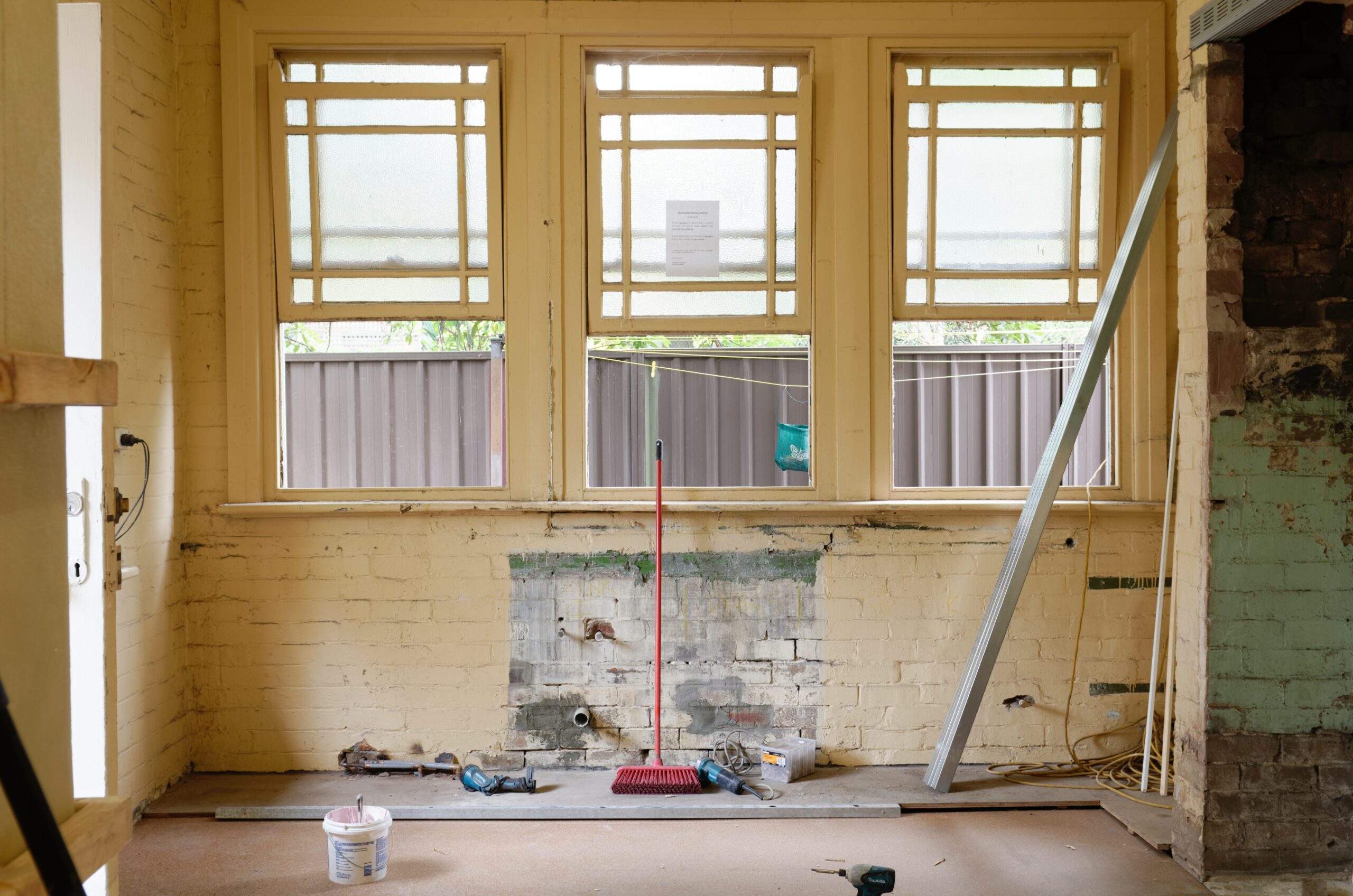Congrats! You have decided to go for a Fixer-Upper Home, considering these 7 points will be helpful for you in making right choice regarding home.
Points you need to consider….
As per the experts, best fixer-upper may be the home that everybody will want to have in the future, but also which nobody wants right now due to its present condition.
So buying a fixer-upper can be a good way to own a home for self or for reselling it after improvement.
Since repairs require one to spend from his saving, it is very important to be vigilant or else one may end up either with buying the wrong property or spending too much more.
1) Location is a crucial factor.
The location and neighborhood is a very crucial factor to be considered before zeroing in to the fixer-upper home.
The home located in a sought after neighborhood can be a valuable investment for the buyer once the repairs are carried out.
It is a famous saying “ Buy the worst house in the best block”.
Most important thing is to be in Love with the area and then to do a little bit of research.
Those buyers who can neglect small imperfections, on getting the home in a good community or locality generally go for Fixer-Upper Homes.
Important Facility to consider:
They give more importance to the nearby facilities like Hospitals, Markets, Parks, and the availability of good public transport.
Home in a good School district is more valuable than some small issues like peeling paint or an unkempt front yard.
Once the buyer is fully satisfied that he is getting all the essential facilities in the locality, then only he should zero in to the exact Fixer upper home.
If the home is for resale after renovation he should consider the facilities keeping the needs of large section of buyers in general.
Then only he may have a good bargain for price.
2) Consider the configuration and layout requirement.
Next thing to consider after the locality is if the layout and the interior specification is of your liking and whether the potential buyers will also like it.
There are more chances to attract more buyers if the home has extra bedrooms than other homes in the locality.
Does the home has an open plan? Its gaining popularity.
A female buyer may be interested if the kitchen is spacious and has double entrance.
Small children would love to have backyard for playing.
It will be of no use going for heavy investment if the walls are required to be rebuilt again. Similarly repairs for Structural damages can also be heavy on your pocket.
So only buy the home if you think the layout may be interesting to large section.
3) The extent of problem to be solved.
After Location and layout, the next thing to consider is the extent of problem.
The Problems in houses can be divided into two categories: Cosmetic and structural
Cosmetic up-gradation:
Experts say the perfect fixer-uppers are the ones that only need cosmetic upgrades. There are many buyers who would scoff at the houses that require small cosmetic repairs and simply walk away.
These buyers don’t know that problems like cracked tiles, peeling paint, smelly odors, and unkempt lawns are only skin-deep; and can be corrected very easily to make the home appealing.
With some freshening up your home can be transformed into an ideal home that anyone would want.
Cosmetic changes are generally less costly and can even add value to the home.
Kitchen and bathroom renovation, wallpaper removal, floor refinishing, and new lighting installation are minor up gradations that add value.
Moreover you have a choice to have your preferred colors, furnishings, and fixtures to make the home perfectly suited to your own taste.
Structural up-gradation:
But experts warn against buying a house with structural damage, especially if there are major flaws in the foundation, septic/sewage system, roofing, siding, or other issues that affect the way a house works, you can consult with roofers Glasgow how to make it work.
You should think twice if the house has termite damage, water damage, needs serious upgrades to the electrical systems, or if there is a mold manifestation.
It can not only be costly affairs but also can be dangerous to live in even after the above matter is fixed.
If you find problems like these after a home inspection, experts say it’s probably best to walk away. These are needed to be treated by a licensed contractor.
Environmental problems such as termite damage or radon can be mitigated, but treatments may not always be successful.
So such fixer-upper are better to be avoided.
4) Consideration of time and efforts invested.
Another big question is whether you have enough time to upgrade it to a dream house. Some renovations make time before completion.
It will definitely take more time owning the Fixed-upper home rather than having a move-in ready home.
Right from finding the right contractor, allocating funds for repairs, getting required permit all these require time.
Also some unexpected delays and small issues and uncertainty of time frame is expected when it comes to repairs and renovation.
You may need to be liberal with time frame before the completion of the work to your satisfaction. It also tests once energy and patience before getting the ideal home ready.
If one is buying for investment purpose then maybe he can give all the time.
But it may differ if the home is required urgently for self or family dwelling.
5) Budget and total cost estimation.
There are three major things you need to include in your budget before doing any repairs:
A) Renovation Cost: A rough estimate is required to be made regarding the cost to be incurred in the renovation including supply cost of new roof and metal roofing materials Melbourne, HVAC, Windows fitting or foundation up-gradations cost.
If attic space is to be converted to extra room, office or study area its cost to be included along with new furniture . The renovation costs (also include labor costs), supplies, and permits must be calculated.
Even before hiring a home inspector or a licensed structural engineer to evaluate the home, creating a reference sheet or estimates for the costs will help in a long way.
This cost assessment exercise will give idea if fixing the home will really fall within your budget.
B) Cosmetic Upgrades: Some like to get the cosmetic upgrades or repairs done from expert so the cost to be incurred must be calculated. Some other like to Do it themselves (Fully or partially). In that case they need to determine the materials they will need and how much they cost.
If bathroom is to be upgraded, the cost of all the fixtures to be included in the list can be ascertained by visiting local supplier or through the brand websites.
C) Permits and Fees: Fees are to be paid to town or local municipalities for securing permits. Renovation carried out without permit from authority can be risky in long run.
Each upgrades and type of renovation has certain permit charge and fees already fixed by authority.
These Fees also change from town to town and can increase if the home is in high end area.
So correct assessment of fee should be made and be included it in the estimate.
The estimated cost of all these Charges will give idea how much cost will be incurred. Now one can ascertain funds at his disposal and if external financing facility is required and will that be feasible for him.
Buyer also needs this budget to get idea if it can yield good return during sale after renovation.
6) Full Expert Work or partial DIY approach.
Some buyers may have to hire professionals or contractors for full repairs and renovation. Some others may decide to do certain tasks by themselves.
Before thinking of buying a fixer-upper, you need to consider your skills set as well.
Minor cosmetic upgrades can be easily learnt and be done by one and in a way can reduce labor costs.
If you’re skilled enough, a Do It Yourself stuff like putting a fresh coat of paint, changing the lighting fixtures, laying the tiles, fixing the toilet fittings, or tear down wallpaper etc can be done by yourself.
Those who wish to spend a little time on their home can use this approach and make their own home more appealing and it can be profitable as well.
If the home is for your own dwelling then it gives sense of satisfaction and proud feeling as well.
An expert caution is that anything related to electricity, house wiring, and major plumbing works are recommended to be done by expert professionals only.
So if one follows DIY approach with care, they may end up spending less on labor cost and instead can buy high-quality materials with this saving.
7) Need for external Finance.
It is not easy to arrange for external financing a fixer-upper home. Still if the home seems to provide value one can check if they qualify for any home improvement loans.
The most popular choices can be the FHA 203(k) loan, and the Section 504 Home Repair program can also be perhaps helpful.
Just remember that all loans have their own strict standards and eligibility requirements.
An informed decision can only be taken after considering all the options and understanding the pros and cons of each program.
Also evaluate that you are pre-approved for loan scheme.
Conclusion
Renovating a fixer-upper should not be considered a casual affair. Such a project can eat away your time, effort, money, and can be patience testing as well.
So once you finalize on a fixer-upper, there is no turning back on later stage.
Buying a home that people may initially reject due to small issues and converting it to perfect beautiful home; it is a challenge.
But if the challenge is accepted and some effort are put in with proper planning; it can means living in your dream home. Also making a significant profit when you sell.
Melissa Dorman is a Licensed Broker with Yascha Group at Living Room Realty in Portland, OR. Follow Yascha Group on Facebook.










